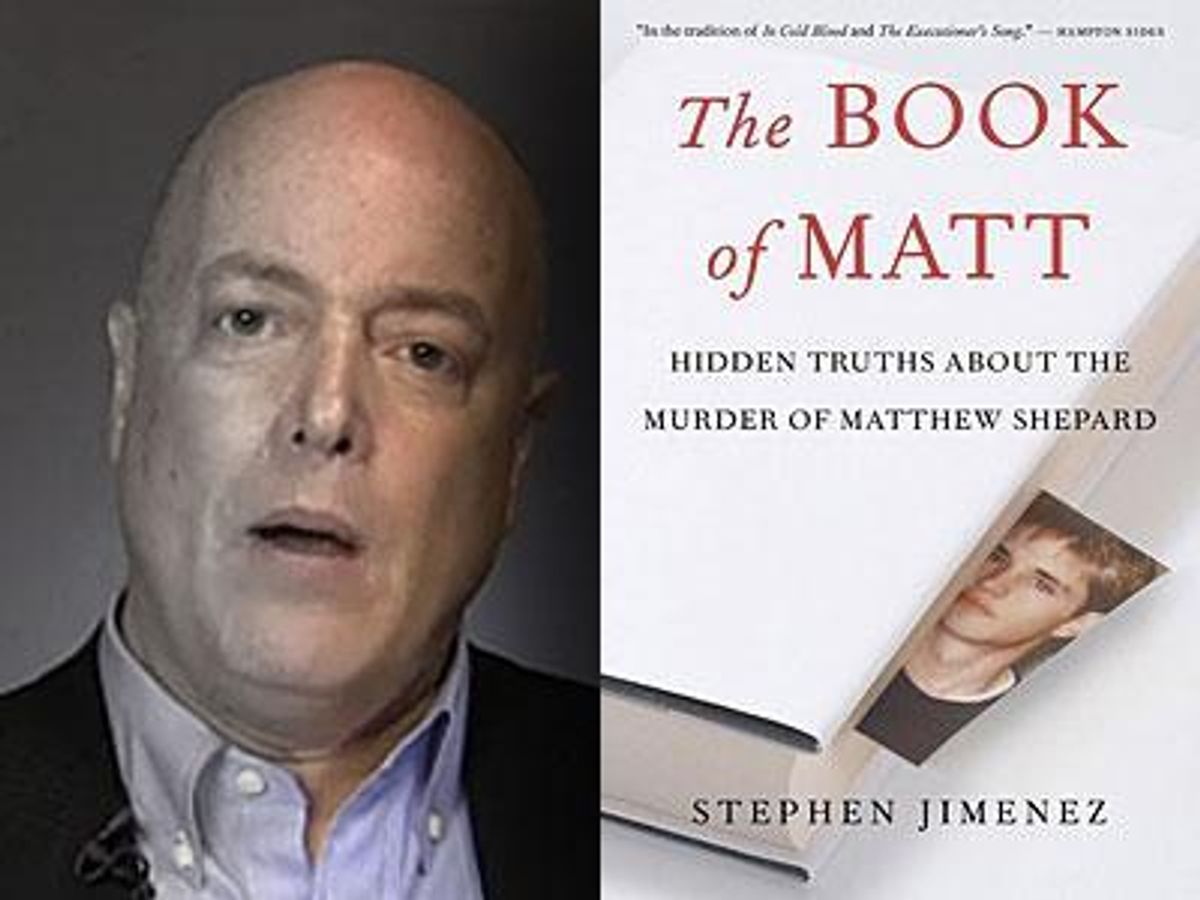After weeks of debate over a new book by Stephen Jiminez, The Book of Matt, which alleges that Matthew Shepard was killed as part of a methamphetamine ring rivalry rather than an anti-gay hate crime, Think Progress's Alyssa Rosenberg has issued a scathing takedown of the author and the book.
Published 15 years after Shepard was murdered in Laramie, Wyoming, The Book of Matt, writes Rosenberg, "isn't really about Shepard at all. Rather, it's an exceptionally shoddy attempt to prove that Shepard was killed because he was a major methamphetamine distributor who Aaron McKinney, one of the two men convicted in his death, intended to rob to pay drug debts and to feed his own habit. And most distastefully, it's an opportunity for Jimenez to portray himself as a hero who's stood up to political correctness."
Jiminez also alleges that McKinney and Shepard were sometime lovers and that the story of how McKinney killed the young college student has been manipulated by the media, attorneys, LGBT activists, and and local police to make Shepard a martyr.
In the intro, Jiminez writes, "Though this is a work of nonfiction journalism, I have occasionally employed methods that are slightly less stringent to re-create the dialogue of characters -- words I did not personally hear; nor could the characters themselves recall every word exactly from memory. But my intention throughout has been to remain faithful to the actual characters and events as they really happened."
Rosenberg calls this a dubious practice, saying "Jimenez compounds the problem by not distinguishing which quotations are manufactured from recollections, which are paraphrases recounted by sources, and which were spoken directly to him.It doesn't help that the way Jimenez presents block quotations frequently suggests that he's manufacturing sentiments, rather than recounting his sources' true intentions. Either Jimenez appears to be regularly and substantially manipulating quotations, or he's using a practice that accidentally but substantially undermines his own credibility."
"Jimenez desperately wants to be seen as a brave social commentator and reporter," Rosenberg alleges. "But the real subject of The Book Of Matt, or at least the place where Jimenez's reportorial detail and emotional energy seem to be most focused, is Jimenez himself. In the conclusion to The Book Of Matt Jimenez says of his sources, 'They were no longer characters in a story. They'd become friends whose lives had enriched me.' It's a perfect conclusion to Jimenez's narrative. Jimenez may still believe that he's telling some sort of brave truth about Matthew Shepard. But it's clear that in the process of reporting this flimsy story, Jimenez built a rather tidy mythology of his own. And whether he knows it or not, the only person he ends up exposing is himself."
Read the full essay at Think Progress.



















































































Here's our dream all-queer cast for 'The White Lotus' season 4